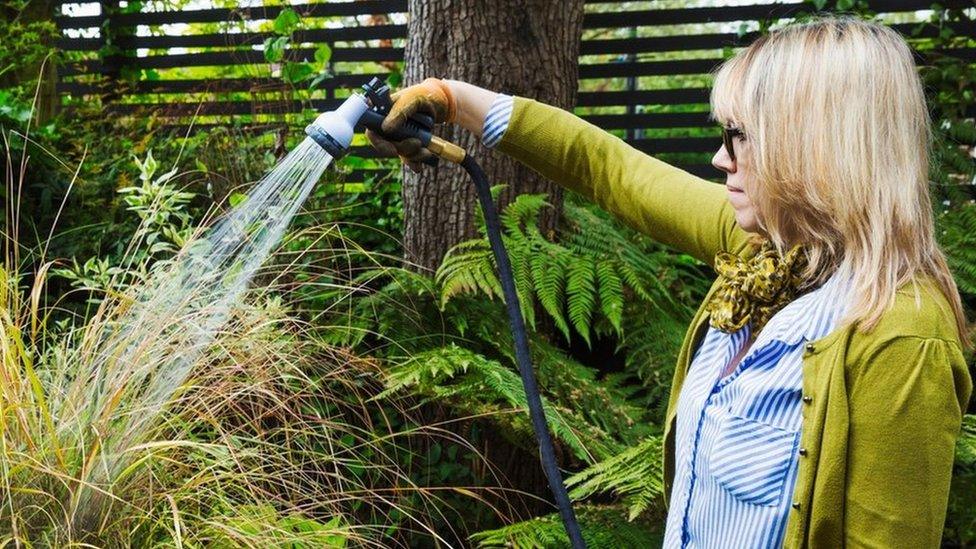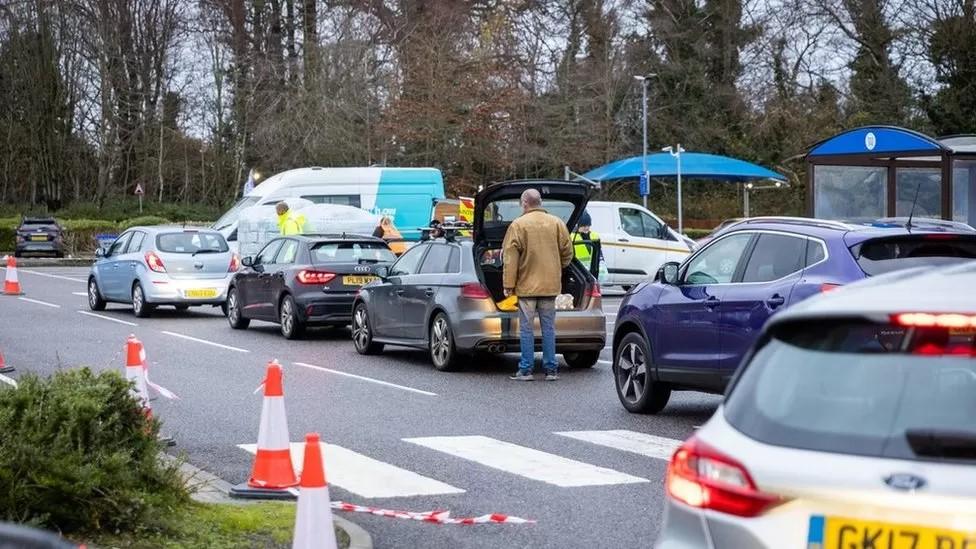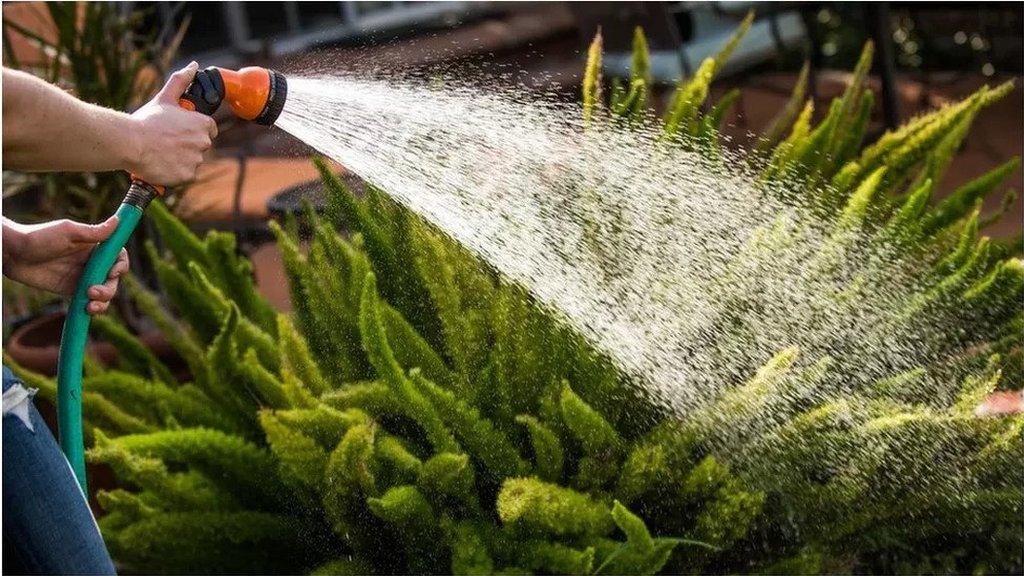South East Water blames working from home for hosepipe ban
- Published

A ban was imposed earlier this month and action can be taken over misuse from Monday
A water company that has imposed a hosepipe ban has blamed people working from home for the shortage.
South East Water, which supplies more than two million homes and businesses in Sussex and Kent, will implement the restriction from Monday.
Chief Executive David Hinton said demand had swelled by about 20% over a short period of time which had put the existing infrastructure under stress.
Customers said the real problem was the company's lack of investment.
A petition has been set up calling for a change of ownership at South East Water.
Meanwhile, a Kent MP has defended gardeners who want to water plants in the Garden of England.
In a letter to customers, Mr Hinton described people working from home as a "key factor" behind the ban.
He wrote: "Over the past three years the way in which drinking water is being used across the south east has changed considerably.
"The rise of working from home has increased drinking water demand in commuter towns by around 20% over a very short period, testing our existing infrastructure."
Mr Hinton also blamed low rainfall since April and a recent spell of hot weather, which he said led to a spike in demand for drinking water.
"Our reservoir and aquifer stocks of raw water, essential to our water supply but not ready to be used, are in a good position. However, demand for treated mains water, which takes time to process and deliver, was greater than we could meet.
"Over the past week we have needed to find water to supply the equivalent of an additional four towns the size of Maidstone or Eastbourne, every day."
'Garden of England'
Artist Jutta Wrobel, 61, of Wadhurst, Sussex, who started an online petition demanding a change of ownership of South East Water after having no supply for five days, accused Mr Hinton of "victim-blaming".
She said: "This is a deflection from the real issue which is how to stop South East Water paying away all our money in dividends rather than reinvesting in our water infrastructure, which is a public utility and a human right.
"We are supposed to be the Garden of England. We are not supposed to have hosepipe bans for two years running."

Bottled water stations were set up in Haywards Heath, Crawley, Crowborough and Pembury
In recent weeks, schools were closed, customers relied on bottled water stations and people were told to use water only for drinking, cooking and hygiene in order to allow the network to refill.
It led to panic among the elderly, vulnerable people struggling to open heavy bottles, and the Conservative MP for Tunbridge Wells, Greg Clark, describing the situation as "woeful".
It also followed supply issues in December when pipes burst due to snow and ice, leaving thousands of households without a supply.
MP backs gardeners
Mr Clark, who met water company chiefs to demand compensation and plans to tackle the problem, said South East Water planned to expand capacity at water treatment plants but said he viewed it with a "sceptical eye".
He asked: "They said they couldn't process enough water to get to people and what they are proposing is to expand capacity, but why hasn't it been done before?"
He said he went to Bewl Water reservoir on Saturday morning and saw it was "pretty much full to the brim".
And he said: "To ban people from watering their gardens or using hosepipes during what's a brief period of hot weather - it hasn't been very long-lasting and not nearly as hot as in July last year - is not acceptable.
"The implication that somehow watering plants is disreputable in a county known as the Garden of England - that's not something we are prepared to accept. It's metered. People when they use it pay for every unit they use."
The MP also rejected the idea that home-working was to blame. He said: "The idea that this uniquely affects South East Water and not other companies operating around London I think is ridiculous to suggest."
- Published19 June 2023
